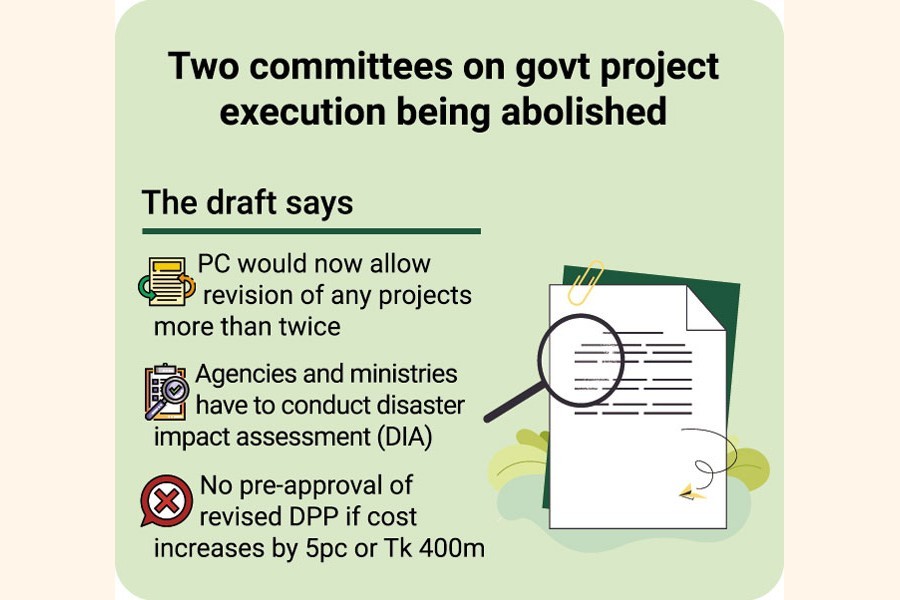The government is set to make some changes to the project formulation and approval process that will involve the disbanding of two committees associated with the execution of projects, officials said Saturday.
A changed provision will make feasibility study mandatory for all projects of the ministries and agencies, they said.
The government ministries or agencies would be bound to conduct a feasibility study before taking projects costing Tk 500 million or above, they added.
The government is going to scrap the project steering committee (PSC) and the project implementation committee (PIC) at the ministries and agencies for "checking misuse of public funds and streamlining the execution process".
Currently, the secretary-headed PSC and the agency chief-headed PIC sit for hundreds of meetings every year for their respective development projects where a significant amount of public funds are misused and time wasted, Planning Commission (PC) officials said.
The PC has recently drafted the 'Development project formulation, processing, approval and revision in the government sector method' for finalising it shortly.
It will organise a workshop on Wednesday next on the draft proposal to get opinions and suggestions from all the ministries and agencies of the government, said PC officials.
"We have already drafted the revised development project formulation, processing, approval and revision method. Now it will be finalised soon," Planning Ministry Additional Secretary Md Syduzzaman, also a member of the drafting committee, told the FE.
According to the draft, the PC would not allow revision of any development projects more than twice except for some exclusive reasons.
During revision of an ongoing development project proposal (DPP), the ministries or agencies would not be allowed to change the project site and the scope.
The agencies and ministries would have to conduct disaster impact assessment (DIA) from now on for taking up a project which has relevance with climate-change impact.
It has also proposed to cut the price- contingency funds to 4.0 per cent of the total project costs in the DPP.
Currently, DPP is allowed to keep aside 8.0 per cent of the total cost estimation and as price contingency and another 2.0 per cent as a physical- contingency fund.
Meanwhile, the implementing agencies would not be allowed to get pre-approval of revised DPP from their line ministry if they increased the overall cost by 5.0 per cent or Tk400 million.
Earlier, the agencies could take pre-approval of their revised DPPs with more than 5.0-per cent cost.
When asked, Additional Secretary of the PC Md Syduzzaman said the Commission had made the move to revise the "Development project formulation, processing, approval and revision method in the government sector" aimed at removing ambiguity and ensuring accuracy.
"After the finalising of the method, project formulation, processing, approval and revision will be streamlined and it will establish transparency and accountability of the government in development works," he added.
At the workshop scheduled for Wednesday, Planning Minister MA Mannan and state minister for planning Prof Shamsul Alam are expected to be present.


